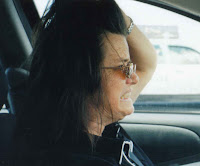 My wife and I don't often look at our credit card bill. We don't like being surprised or scared.
My wife and I don't often look at our credit card bill. We don't like being surprised or scared.
But we don't like being poor, either. To be honest, we've had too many visits to the ATM where the machine said “insufficient funds.”
So lately, we've unsealed the unopened letters from the bank, and discovered what's obvious: Everything's going up. Gas. Groceries. Utility and cable bills.
It's certainly understandable. Services expand, so the costs go up. Our combined mortgage and tax bill now consumes more than 50 percent of my monthly salary.
The only one that's puzzling, however, is E-Z Pass, the toll service that allows vehicles to pass through without stopping. How does a bill keep inching closer to $300 every month when the highway toll rates haven't increased in five years?
It was the kind of tip-of-the-iceberg moment that makes hard-working families feel helpless, depressed and downright angry. And it's going to get worse now that the tolls rates on bridges, tunnels, ferries, highways and trains are all going up — by a lot. On the Hudson River crossings heading into New York, they increase by $2 as of today.
Some call the toll hikes just another cost-of-living adjustment that's part of American life. But, for many commuters, it's become virtually impossible to adjust when the cost-of-living is out-of-reach.
And what choices do you have when your income stays flat, the job market shrinks and there really isn't much of a mass transit alternative? How do you save to send you children to college? How do we pay our mortgage when property tax hikes make toll increases look like 50-cent Salvation Army donation?
“If I do drive into the city, I have to pay more for tolls — it’s a lot of money,” said Harry Adrian of New Jersey. “I can’t make a decent living by doing that.”
The obvious answer is to cut back. But how do cut back on a budget that, from our point of view, is already bare bones? Should we deny our children activities that help them grow and learn?
My wife has been shuffling the kids to more out-of-town extracurricular activities — a travel regimen that's contributing to the rising E-Z Pass costs. But karate and travel soccer have done wonders for our children's self-esteem and confidence. We've talked to psychologists who have endorsed this parental approach — though, I suppose, we wouldn't get the same response from financial planners.
Otherwise, we've virtually cut out any vacations. We've taken on additional jobs, such as teaching on an adjunct basis at local colleges. My wife teaches enrichment classes at the local YMCA.
We've also been using more mass transit — such as taking the train to get to New York City — and also staying home on occasion instead of working in the office.
But, as Adrian noted, these choices don't always serve as an equal substitute. Taking a train into the city every month costs around the same amount — or more — as paying for gas, sitting in traffic and using E-Z Pass to get into the city.
Once you get into the city, there's the additional cost of using the subway — and paying higher rates for that, too — or paying for a cab because, as Adrian noted, New York City's mass transit system doesn't always get people where they need to go.
All that takes a lot of time, Adrian noted, forcing him to spend too much time navigating a complicated system and not enough time seeing his family in Bogota.
“The roads that go into the city are always jammed up with cars — for that reason, I don't drive," said Adrian, who works for New York City Transit and takes the bus into the city. “I take public transportation, but it takes a lot of effort.”
The various transportation agencies have provided public forums for people to express their frustration regarding the rate hikes, and plea for change. But the six public hearings held in December to discuss toll and fare hikes on the Hudson River crossings and train lines usually attracted no more than five people at a time.

What people often fail to realize is that government will usually listen if you get loud.
I think of Steve Carrellas, New Jersey coordinator for the National Motorists Association, who got involved in transportation interests because he wanted the speed limit raised from 55 to 65.
He got that. But the more he paid attention to what's happening in New Jersey, the more he felt like he should get involved and provide a voice for the state's weary commuters.
Now the Port Authority and NJ. Gov. Jon Corzine actually lean on him for advice. They'll also brief him before they make a proposal to raise tolls — as the Corzine administration did earlier this month before it announced that it was raising tolls 500 percent over the next 15 years.
“We can support an increase if they can justify fairness and value,” Carrellas said. “If you can at least show some value [and invest in alternatives such as mass transit] then you can say it may be worth it.”

















No comments:
Post a Comment